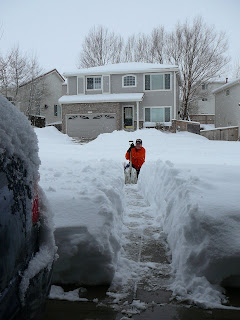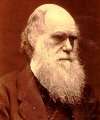

This is one of my favorite poems of all time.
Enjoy it and the day...
Winter Solstice, Camelot Station John M. FordCamelot is served
By a sixteen-track stub terminal done in High Gothick Style,
The tracks covered by a single great barrel-vaulted glass roof framed upon iron,
At once looking back to the Romans and ahead to the Brunels.
Beneath its rotunda, just to the left of the ticket windows,
Is a mosaic floor depicting the Round Table
(Where all knights, regardless of their station of origin
Or class of accommodation, are equal),
And around it murals of knightly deeds in action
(Slaying dragons, righting wrongs, rescuing maidens tied to the tracks).
It is the only terminal, other than Gare d'Avalon in Paris,
To be hung with original tapestries,
And its lavatories rival those at the Great Gate of Kiev Central.
During a peak season such as this, some eighty trains a day pass through,
Five times the frequency at the old Londinium Terminus,
Ten times the number the Druid towermen knew.
(The Official Court Christmas Card this year displays
A crisp black-and-white Charles Clegg photograph from the King's own collection.
Showing a woad-blued hogger at the throttle of "Old XCVII,"
The Fast Mail overnight to Eboracum. Those were the days.)
The first of a line of wagons have arrived,
Spilling footmen and pages in Court livery,
And old thick Kay, stepping down from his Range Rover,
Tricked out in a bush coat from Swaine, Adeney, Brigg,
Leaning on his shooting stick as he marshalls his company,
Instructing the youngest how to behave in the station,
To help mature women that they may encounter,
Report pickpockets, gather up litter,
And of course no true Knight of the Table Round (even in training)
Would do a station porter out of Christmas tips.
He checks his list of arrival times, then his watch
(A moon-phase Breguet, gift from Merlin):
The seneschal is a practical man, who knows trains do run late,
And a stolid one, who sees no reason to be glad about it.
He dispatches pages to posts at the tracks,
Doling out pennies for platform tickets,
Then walks past the station buffet with a dyspeptic snort,
Goes into the bar, checks the time again, orders a pint.
The patrons half turn--it's the fella from Camelot, innit?
And Kay chuckles soft to himself, and the Court buys a round.
He's barely halfway when a page tumbles in,
Seems the knights are arriving, on time after all,
So he tips the glass back (people stare as he guzzles),
Then plonks it down hard with five quid for the barman,
And strides for the doorway (half Falstaff, half Hotspur)
To summon his liveried army of lads.
* * *
Bors arrives behind steam, riding the cab of a heavy Mikado.
He shakes the driver's hand, swings down from the footplate,
And is like a locomotive himself, his breath clouding white,
Dark oil sheen on his black iron mail,
Sword on his hip swinging like siderods at speed.
He stamps back to the baggage car, slams mailed fist on steel door
With a clang like jousters colliding.
The handler opens up and goes to rouse another knight.
Old Pellinore has been dozing with his back against a crate,
A cubical, chain-bound thing with FRAGILE tags and air holes,
BEAST says the label, QUESTING, 1 the bill of lading.
The porters look doubtful but ease the thing down.
It grumbles. It shifts. Someone shouts, and they drop it.
It cracks like an egg. There is nothing within.
Elayne embraces Bors on the platform, a pelican on a rock,
Silently they watch as Pelly shifts the splinters,
Supposing aloud that Gutman and Cairo have swindled him.
A high-drivered engine in Northern Lines green
Draws in with a string of side-corridor coaches,
All honey-toned wood with stained glass on their windows.
Gareth steps down from a compartment, then Gaheris and Aggravaine,
All warmly tucked up in Orkney sweaters;
Gawaine comes after in Shetland tweed.
Their Gladstones and steamers are neatly arranged,
With never a worry--their Mum does the packing.
A redcap brings forth a curious bundle, a rude shape in red paper--
The boys did that one themselves, you see, and how
does one wrap a unicorn's head?
They bustle down the platform, past a chap all in green.
He hasn't the look of a trainman, but only Gawaine turns to look at his eyes,
And sees written there
Sir, I shall speak with you later.
Over on the first track, surrounded by reporters,
All glossy dark iron and brass-bound mystery,
The Direct-Orient Express, ferried in from Calais and Points East.
Palomides appears. Smelling of patchouli and Russian leather,
Dripping Soubranie ash on his astrakhan collar,
Worry darkening his dark face, though his damascene armor shows no tarnish,
He pushes past the press like a broad-hulled icebreaker.
Flashbulbs pop. Heads turn. There's a woman in Chanel black,
A glint of diamonds, liquid movements, liquid eyes.
The newshawks converge, but suddenly there appears
A sharp young man in a crisp blue suit
From the Compagnie Internationale des Wagons-Lits,
That elegant, comfortable, decorous, close-mouthed firm;
He's good at his job, and they get not so much as a snapshot.
Tomorrow's editions will ask who she was, and whom with...
Now here's a silver train, stainless steel, Vista-Domed,
White-lighted grails on the engine (running no extra sections)
The
Logres Limited, extra fare, extra fine,
(Stops on signal at Carbonek to receive passengers only).
She glides to a Timkin-borne halt (even her grease is clean),
Galahad already on the steps, flashing that winning smile,
Breeze mussing his golden hair, but not his Armani tailoring,
Just the sort of man you'd want finding your chalice.
He signs an autograph, he strikes a pose.
Someone says, loudly, "Gal! Who serves the Grail?"
He looks--no one he knows--and there's a silence,
A space in which he shifts like sun on water;
Look quick and you may see a different knight,
A knight who knows that meanings can be lies,
That things are done not knowing why they're done,
That bearings fail, and stainless steel corrodes.
A whistle blows. Snow shifts on the glass shed roof. That knight is gone.
This one remaining tosses his briefcase to one of Kay's pages,
And, golden, silken, careless, exits left.
Behind the carsheds, on the business-car track, alongside the private varnish
Of dukes and smallholders, Persian potentates and Cathay princes
(James J. Hill is here, invited to bid on a tunnel through the Pennines),
Waits a sleek car in royal blue, ex-B&O, its trucks and fittings chromed,
A black-gloved hand gripping its silver platform rail;
Mordred and his car are both upholstered in blue velvet and black leather.
He prefers to fly, but the weather was against it.
His DC-9, with its video system and Quotron and waterbed, sits grounded at Gatwick.
The premature lines in his face are a map of a hostile country,
The redness in his eyes a reminder that hollyberries are poison.
He goes inside to put on a look acceptable for Christmas Court;
As he slams the door it rattles like strafing jets.
Outside the Station proper, in the snow,
On a through track that's used for milk and mail,
A wheezing saddle-tanker stops for breath;
A way-freight mixed, eight freight cars and caboose,
Two great ugly men on the back platform, talking with a third on the ballast.
One, the conductor, parcels out the last of the coffee;
They drink. A joke about grails. They laugh.
When it's gone, the trainman pretends to kick the big hobo off,
But the farewell hug spoils the act.
Now two men stand on the dirty snow,
The conductor waves a lantern and the train grinds on.
The ugly men start walking, the new arrival behind,
Singing "Wenceslas" off-key till the other says stop.
There are two horses waiting for them. Rather plain horses,
Considering. The men mount up.
By the roundhouse they pause,
And look at the locos, the water, the sand, and the coal,
The look for a long time at the turntable,
Until the one who is King says "It all seemed so simple, once,"
And the best knight in the world says "It is. We make it hard."
They ride on, toward Camelot by the service road.
The sun is winter-low. Kay's caravan is rolling.
He may not run a railroad, but he runs a tight ship;
By the time they unload in the Camelot courtyard,
The wassail will be hot and the goose will be crackling,
Banners snapping from their towers, fir logs on the fire, drawbridge down,
And all that sackbut and psaltery stuff.
Blanchefleur is taking the children caroling tonight,
Percivale will lose to Merlin at chess,
The young knights will dally and the damsels dally back,
The old knights will play poker at a smaller Table Round.
And at the great glass station, motion goes on,
The extras, the milk trains, the varnish, the limiteds,
The
Pindar of Wakefield, the
Lady of the Lake,
The
Broceliande Local, the
Fast Flying Briton,The nerves of the kingdom, the lines of exchange,
Running to a schedule as the world ought,
Ticking like a hot-fired hand-stoked heart,
The metal expression of the breaking of boundaries,
The boilers that turn raw fire into power,
The driving rods that put the power to use,
The turning wheels that make all places equal,
The knowledge that the train may stop but the line goes on;
The train may stop
But the line goes on.
Labels: poetry


















































































2 Comments:
-
At 3:22 PM, December 29, 2009
 Anonymous had this to say...
Anonymous had this to say...
-
-
At 6:26 AM, January 02, 2010
 Anonymous had this to say...
Anonymous had this to say...
-
-
<-- Older Post ^ Home Newer Post -->Интересно написано....но многое остается непонятнымb
Интересно написано....но многое остается непонятнымb
Post a Comment
Subscribe to Post Comments [Atom]